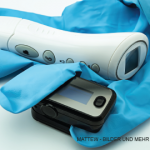“We need to be experts in this drug, as it can also be used in a lot of other diseases such as systemic undifferentiated recurrent fever syndromes, PFAPA, Behcet’s disease and recurrent pericarditis,” Dr. Lapidus said.
2021 EULAR/ACR Guideline on IL-1-Mediated Autoinflammatory Diseases
In 2022, EULAR and the ACR published joint guidelines on IL-1-mediated monogenic autoinflammatory diseases, which provides considerations for CAPS, TRAPS, MKD and DIRA (deficiency of the interleukin-1 receptor antagonist). IL-1 blocking agents are now the preferred treatment, and they are critical for preventing the development of irreversible organ damage related to inflammation.4
Dr. Lapidus explained, “The goal of therapy is to control clinical signs and symptoms and normalize laboratory biomarkers of systemic inflammation using a treat-to-target approach. We really want to get their inflammatory response rapidly under control.”
Clinicians should not hesitate to start IL-1 inhibitors if they suspect one of these diagnoses, even if not fully confirmed. In this context, Dr. Lapidus noted that the IL-1 blocker canakinumab, which has a very long half-life, may be easier for patients to manage in terms of compliance compared to rilonacept and especially anakinra, which has the shortest half-life of these agents.
Dr. Lapidus noted that patients with more severe disease or disease with specific manifestations (e.g., central nervous system involvement) may require more frequent and higher doses compared to those with more mild symptoms. She also underscored that in organ-threatening disease, IL-1 inhibitor treatment should typically continue even during an ongoing viral infection such as SARS-CoV-2.
PFAPA Consensus Treatment Plan
Although no treatment guideline for PFAPA exists due to lack of clinical trials, the 2020 consensus treatment plan from the Childhood Arthritis and Rheumatology Research Alliance (CARRA) can help clinicians shape their management. Hopefully, the consensus plan will lead to future comparative effectiveness studies that can be used in future evidence-driven guidelines.6
Clinicians can approach treatment via four different arms: 1) antipyretics, which may be sufficient for some patients, 2) corticosteroids, 3) prophylaxis via colchicine or cimetidine or 4) tonsillectomy without or without additional adenoidectomy. Although the monogenic disorders previously mentioned may require lifelong interventions, PFAPA is usually self-limited and relatively benign, resolving by adolescence.
Treatment Challenges
Dr. Lapidus also highlighted some of the major treatment challenges for these diseases. For example, for many patients who don’t have an identified mechanism, the best treatment approach is unclear. She noted that treatment intolerance can be a challenge, especially for diseases that require long-term therapy. Additionally, Dr. Lapidus focused on the need to learn more about drug dosing and identifying the best drugs for disorders with the potential for serious organ damage (e.g., the central nervous system in some forms of CAPS).


